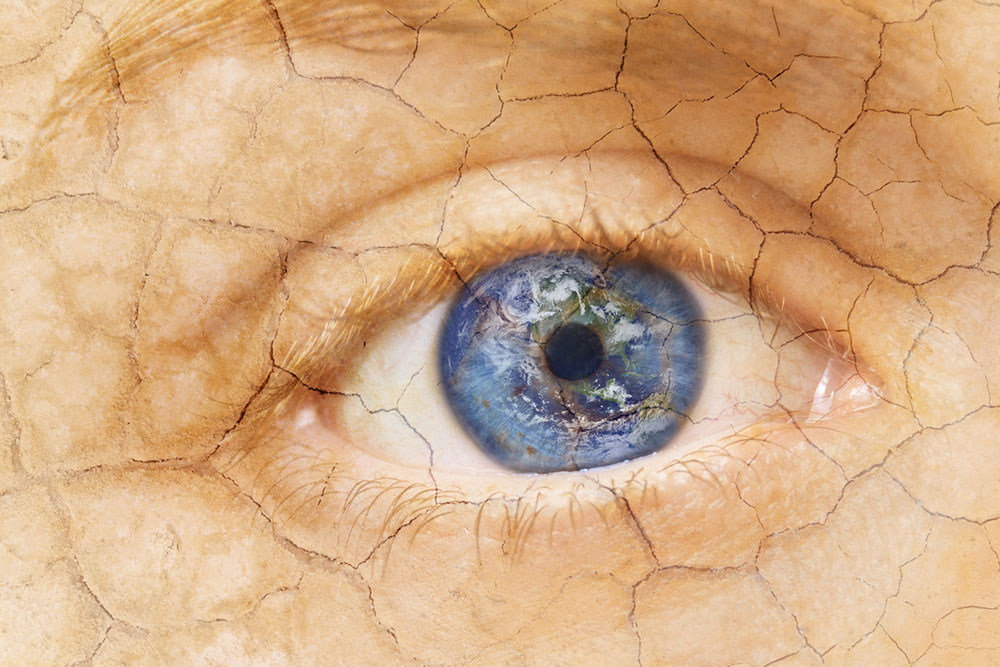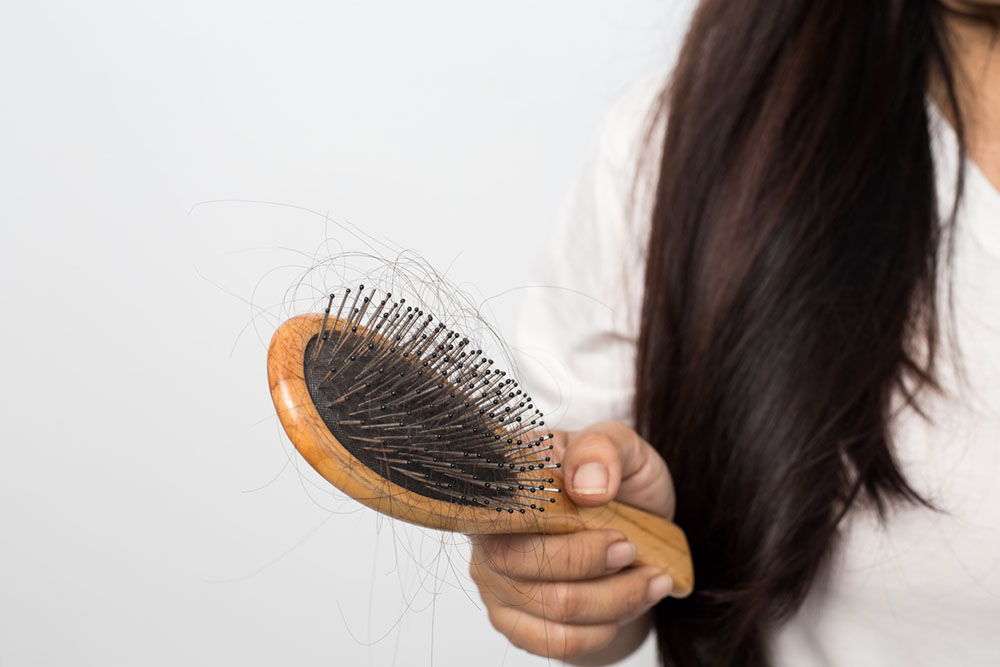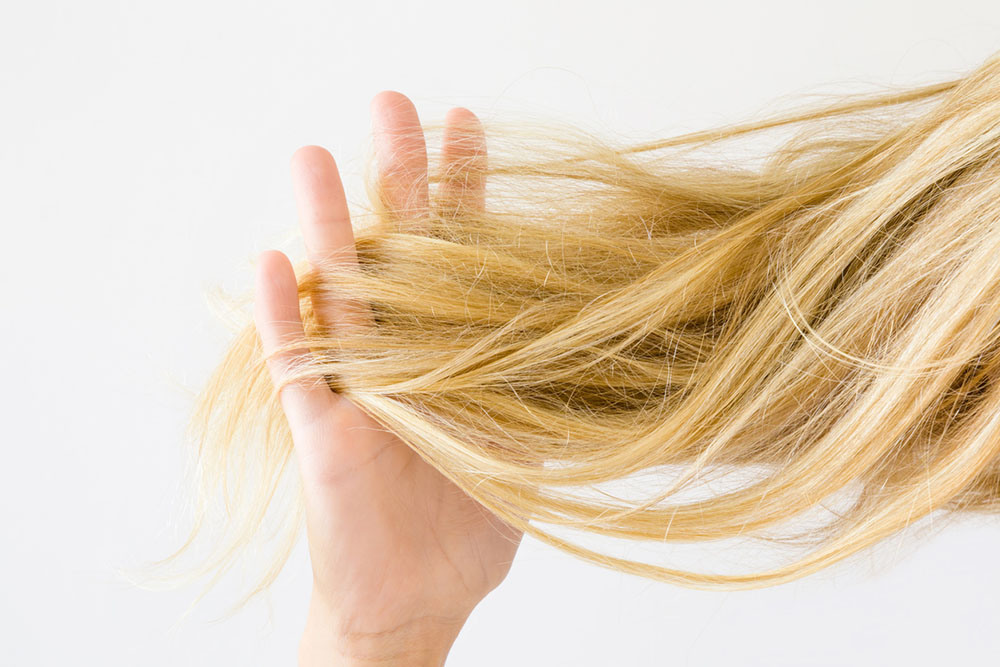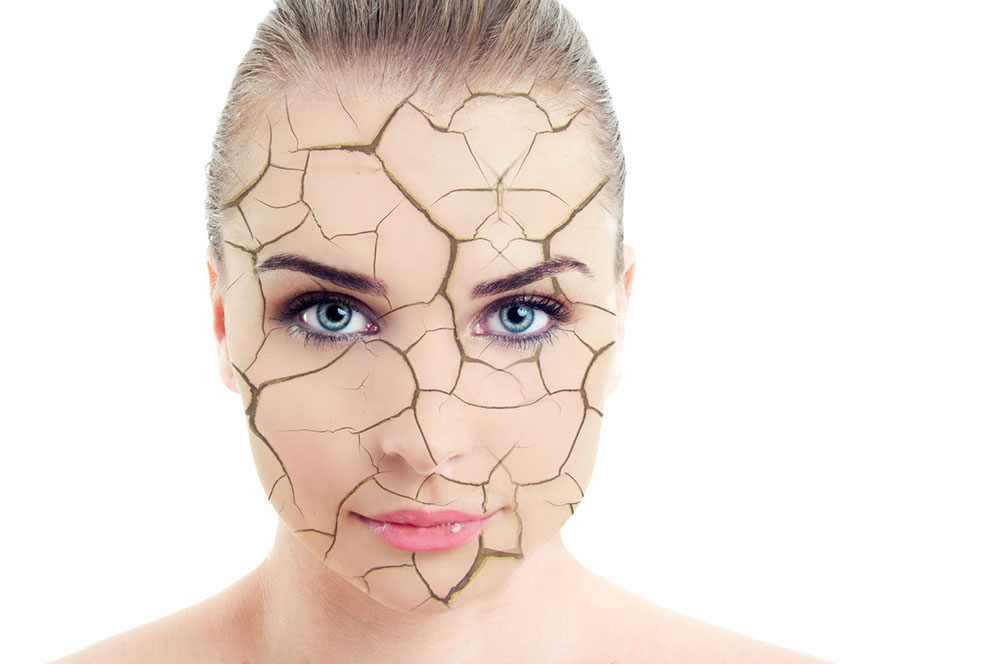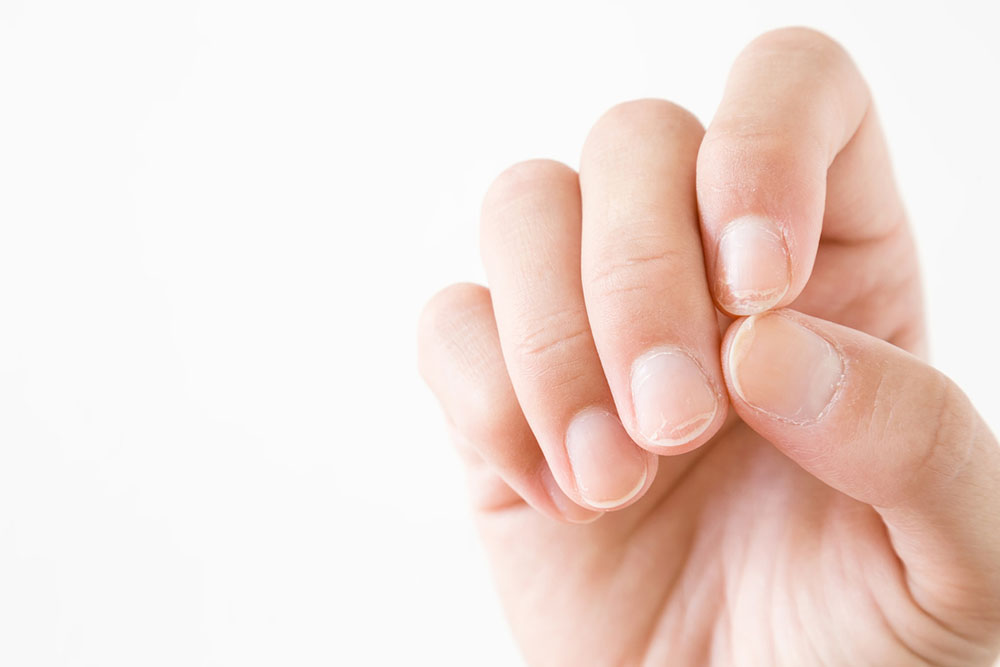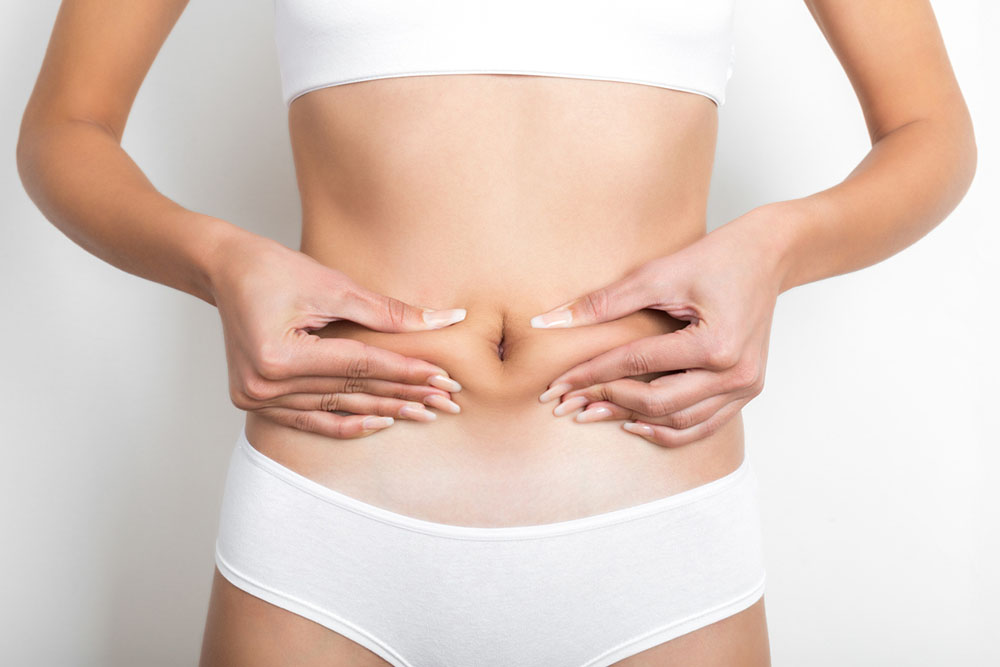Got thinning hair? You might need biotin. If your skin is dry, it might need zinc. Anna Magee speaks to a leading nutritionist about what your looks are telling you about the vitamins you need
If you want to know about your body’s vitamin levels (which may be lacking after all the Christmas partyling), there are saliva, blood or hair strand tests that can reveal your body’s vitamin levels.
But the more subtle signs of what your body needs could be staring you in the face, literally.
‘Often the first signs your body is lacking key nutrients are in your appearance,’ says Higher Nature nutritionist Charlotte Gilbert, who Healthista spoke to for this story.
‘Hair, nails, skin and eyes need a diet rich in vitamins and minerals to function at their best and their appearance is often like a window into what someone’s diet is lacking’.
1. Dry, itchy or puffy eyes
Vitamin A for example, helps protect eyes, especially if you work on screens a lot, says Gilbert.
Lutein and zeaxanthin are substances found in green leafy vegetables, as well as yellow and other green vegetables and egg yolks. These help protect the eyes from UV damage and oxidation, explains Gilbert.
It’s important to prioritise foods containing lutein and zeaxanthin (or take a supplement such as Higher Nature, Visual Eyes, £22.25 which contains both) in your diet because they can help prevent UV damage to the macula part of the eye which can cause age-related macular degeneration. This is a type of eye disease that affects older people and is in fact the leading cause of blindness in the UK (wearing sunglasses with UV protection is also essential).
DHA is a type of omega-3 fatty acid essential to eye health found primarily in oily fish like sardines, mackerel and anchovies. So, if you hate oily fish, and also have dry puffy eyes, it may be a sign you’re low in DHA.
‘DHA is concentrated in the retina of the eye which is why one of the first symptoms of low DHA is dry, puffy eyes,’ says Gilbert. ‘You can’t easily get plant sources of omega-3 fatty acids like DHA naturally which is why eating oily fish is so important,’ says Gilbert.
Vegetarians and vegans can take a type of fatty acid known as alpha-linolenic acid, explains Gilbert. ‘However, you need a lot of other nutrients in your body to convert these effectively in your body to omega 3 fatty acids. ‘
Thankfully for vegans and vegetarians, omega 3 fatty acids such as DHA can now be extracted from algae sources and DHA supplements made from this are now available, says Gilbert.
‘You can also eat nuts and seeds such as walnuts, flaxseeds and chia seeds which are also rich in omega-3s, but ensure you eat a lot of vegetables so your body has the nutrients available to convert them properly into the essential fats it needs,’ she advises.
2. Hair thinning or loss
An estimated 8 million women in the UK suffer with hair loss or thinning. If this is you, a nutrient deficiency may be to blame. ‘One of the key B vitamins for hair health is called biotin and deficiency is linked to hair loss so top up if you have thinning hair’, Gilbert suggests
Biotin is also good for skin and the nervous system (something all the B vitamins help) and is found in green leafy vegetables, dairy, eggs and poultry, nuts, seeds and wholegrains.
And if you’re concerned about greying hair, biotin may help that too, along with vitamin B5 and folic acid which are all usually found in a good B complex supplement, Gilbert asserts. Try Higher Nature, True Food B Complex, £8.15.
Low levels of vitamin B2 are linked with dull and oily hair, says Gilbert. That’s why it’s best to take your biotin as part of a B-complex, she says. ‘Look for biotin levels of up to 80mcg on the label.
Meanwhile, low iron levels are also associated with hair loss, she explains. So, if you have other signs of iron deficiency such as pale skin and cold hands and feet, having your iron levels checked by your doctor is essential. Food sources of iron include meat, dairy, poultry and fish and the best plant sources are pumpkin seeds, pulses, spinach and other leafy vegetables.
‘Keep in mind that vitamin C helps absorption of iron, so eating something vitamin C rich such as orange, kiwi fruit or tomato with your iron rich food can help your body absorb that iron,’ says Gilbert.’
Hair loss is also a key symptom of zinc deficiency. Zinc is essential to good cellular replication and protein absorption and these functions are essential to thick, glossy hair.
In fact, a 2013 study in the Annals of Dermatology on 312 people with hair loss found that all had lower zinc concentrations in their blood than those in a control group.
The good news? A study in the same journal found that supplementing with zinc daily for 12 weeks was enough for 66 per cent of the patients in the trial to see an improvement. Opt for absorbable forms of zinc such as zinc citrate and take a dose of up to 15mg daily.
3. Dry, brittle or dull hair
One mineral we rarely hear about is silica which is crucial for making healthy collagen to support not only skin but also hair health. In fact, dry, brittle and dull hair can often be the first sign you’re lacking silica.
‘Research has found that higher silica levels in people’s hair was associated with reduced hair loss and increased hair brightness,’ says Gilbert.
A 2016 review of the scientific literature looking at the benefits of silica showed it had great therapeutic potential as a beauty supplement. You can take this as a supplement of pure silicon or as horsetail extract which contains high levels of silicon. It is usually found in a complexes developed for hair, nails or skin. Try Higher Nature, Nails & Hair Formula, £20.25
Taking collagen can also help support your silica levels and collagen from marine sources is well-absorbed by the body, says Gilbert.
‘Collagen tends to come in a hydrolysed or powder form which means the chains of amino acids are broken down making it easier to absorb in the body.
‘There are quite a few studies showing how helpful it is for hair and skin to supplement with collagen, at the levels of about five grams a day.’
But if you are taking collagen, you need to take it on an empty stomach. ‘Collagen is a protein so taking it with any other proteins can interfere with absorption,’ says Gilbert.
4. Fine lines or dry skin
If you’re concerned about your skin’s texture and tone and you also happen to have a poor sense of smell or get salt cravings, these are not random symptoms – they may all point to a zinc deficiency, says Gilbert.
‘Five per cent of our zinc is stored in our skin and low levels are associated with poor wound healing, rough and dry skin.’ Some of the ways that a zinc deficiency can be reflected in the skin is oily skin, stretchmarks or acne [see below], she asserts.
When the skin is very dry, as nutritionists we would also look at how much omega 3 fatty acids the person is getting, because so few people regularly eat oily fish, which is the key source, omega-3s are commonly lacking in people’s diets.
Moreover, sulphur is a nutrient we rarely hear about but in nutrition world it’s often referred to as ‘the beauty mineral’. This is because sulphur supports the production of collagen for skin and keratin for hair and nails and so helps keep skin clear and more youthful, hair shiny and nails strong, Gilbert reveals.
Supplemented as something called MSM which usually comes in powder form, sulphur is actually the third most abundant mineral in the body.
‘If you’re looking to get your sulphur from food, it’s often smelly food that contains it because sulphur has the smell of rotten eggs,’ says Gilbert.
Think egg yolks, onions, garlic, cruciferous vegetables, meat and fish. ‘But sulphur is easily destroyed by cooking and processing so supplementing with MSM can be a good idea’.
5. Oily skin or acne
If you have oily skin, you may have low levels of vitamin A, so try topping up with a multivitamin that contains up to 1500mcg of vitamin A, Gilbert recommends. ‘Or you can opt for a mix of vitamin A and beta-carotene as a good way to get your vitamin A safely’.
If you get acne, zinc could help too. Staggeringly, one study in the Journal of the Turkish Academy of Dermatology 54 per cent of those with acne had low zinc levels.
6. Slow-growing, ridged or white nails
Oddly enough, the problem with your nails might actually be in your stomach.
Nail health is closely connected to digestion, and if you have low levels of stomach acid, your body might not be digesting its food properly and assimilating key nutrients. ‘The first sign of poor digestion is often weak, dry nails,’ says Gilbert. So what causes low stomach acid? ‘It could be ageing, stress or low B vitamins and zinc’ she says.
Splitting, weak nails can also often be associated with a protein deficiency, says Gilbert. So, make sure you’re getting enough protein in the form of lean meats, eggs, tofu, tempeh, beans and pulses.
White lines and flecks on your finge nails as well as slow growing nails may also be a sign of zinc deficiency, so try supplementing with zinc as this can also help nail growth.
7. Fat around the middle
If you have a high sugar diet, crave sugar and tend to eat it often, you may also be putting on weight around the middle. This is because the body can’t use excess sugar you’re eating so it ends up being converted and stored as fat, often round the middle of the body.
‘The constant spikes in blood sugar from such a diet high in sugar and refined carbohydrates lead your body to constantly pump out insulin to process the excess sugar and this can also lead to insulin resistance and type 2 diabetes’, says Gilbert.
So, first things first, if you want to get rid of that spare tyre, eat a whole, unprocessed diet high in lean protein, wholegrains and fruit and vegetables.
You can also try taking chromium, a mineral that helps insulin work more effectively in the body and can therefore help with constant sugar cravings.
‘When insulin is released chromium is transported to cells, making them more sensitive to insulin,’ Gilbert explains. ‘That means the cells can take up glucose from the blood and reduce the amount of glucose circulating in the blood stream,’ says Gilbert.
Excess blood sugar leads to the irregular rollercoaster of blood sugar highs and lows and researchers have demonstrated that a single dose of chromium given to healthy adults taken before a high carb meal reduces the spike in blood sugar and the associated cravings that come with it.
Chromium is the most important part of glucose tolerance factor (GTF), which is a complex of molecules that help the body respond to glucose in the blood stream.
‘If you’re looking for a supplement, look for chromium listed as GTF because has been shown in research to be more effective than standard chromium in helping with insulin sensitivity,’ says Gilbert.
Take first thing in the morning with breakfast – a good dose is 200mcg and you only need to take it once a day, Gilbert suggests. It sets you up to be on the right path for the day and supports your good intentions. Try Higher Nature chromium 200mg £5.85.
Healthista readers can get 20% off all Higher Nature supplements by quoting HEALTHISTA20 at checkout.
More Healthista Content:
WIN £300 worth of Benefit cosmetics
9 nut butter obsessed Instagram stars share their snack hacks
The ONE anti-ageing secret this 58 year old science writer swears by (yes, she is 58!)
The 5-minute running warm-up to keep injuries at bay
Like this article? Sign up to our newsletter to get more articles like this delivered straight to your inbox.




